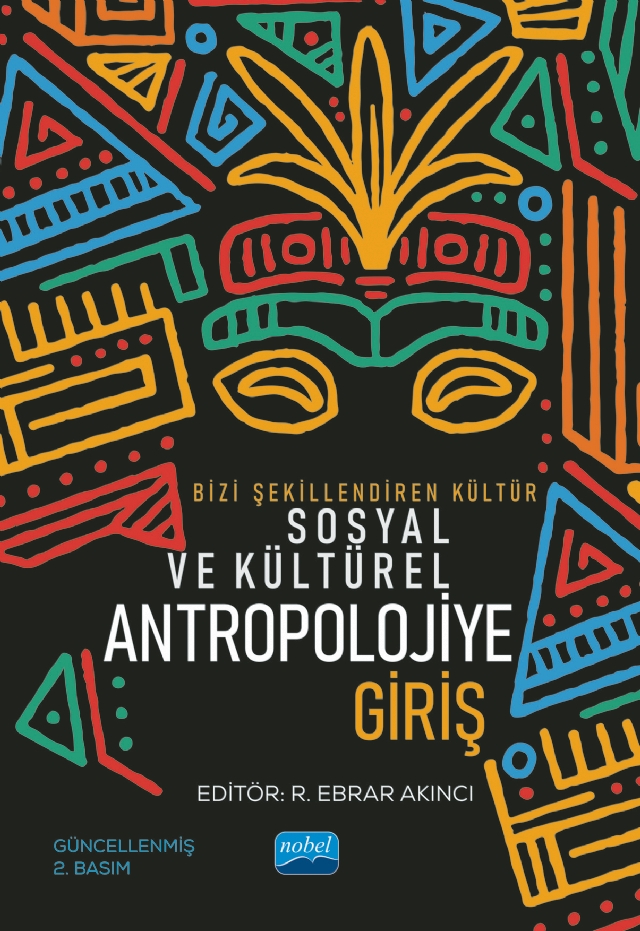Sociology of Culture \ 1-1

Anthropology, which has claimed to deal with “human” holistically for more than a century, has taken its place in history as a new social science; Over time, with the change of cultural phenomena, it has also been transformed and divided into sub-disciplines.
The Culture That Shaped Us – An Introduction to Social and Cultural Anthropology book also presents this social science field to the reader as an introductory text.
In this book, starting from the conditions in which anthropology emerged and following its interaction with other social sciences; anthropology as well as theoretical approaches; Field experiences, research methods, language, economics, gender, family, politics, law, religion and art are also discussed.
If everything that stays the same and/or changes is within the domain of culture, then commonalities and differences regarding human beings also fall within the scope of cultural anthropology. This book it discusses the "culture that shapes us" by including the "us that shapes the culture" and draws a two-pronged anthropology framework.
The Culture That Shaped Us – An Introduction to Social and Cultural Anthropology book also presents this social science field to the reader as an introductory text.
In this book, starting from the conditions in which anthropology emerged and following its interaction with other social sciences; anthropology as well as theoretical approaches; Field experiences, research methods, language, economics, gender, family, politics, law, religion and art are also discussed.
If everything that stays the same and/or changes is within the domain of culture, then commonalities and differences regarding human beings also fall within the scope of cultural anthropology. This book it discusses the "culture that shapes us" by including the "us that shapes the culture" and draws a two-pronged anthropology framework.

Folklore, whose foundations were laid in Western Europe, has tended to spread to Western Asia, the Mediterranean basin and North America since the beginning of the 20th century. The beginning of Anatolian-centered Turkish folklore studies is also dated to this period. Turkish folklore, advancing towards a scientific formation with the pioneering works of Turkist intellectuals, has shown a rapid development in the context of the cultural policies of the Republic of Turkey. The fact that folklore studies have started to be carried out in an institutional framework has brought about the representation of this new branch of knowledge in our academy. Many scientists have provided unforgettable services in the progress of this process, which dates back to the 1960s, and in understanding the importance of folklore in cultural sciences.
folklore; In addition to becoming an undergraduate and graduate level department in the "Turkish Language and Literature" departments of the academies, the need for teaching materials has increased day by day with the opening of the "Folklore" departments, which aim to train experts in the field of folklore. The need for resources where different perspectives and innovative views are put forward has been tried to be met with various studies. The Folklore Handbook has been prepared to add a new one to these studies. In this book, which aims to be a source for the departments of our academy such as Turkish Language and Literature, Folklore, Anthropology, Musicology, Architecture, Art History, Handicrafts at undergraduate and graduate level, almost all subjects within the scope of folklore have been evaluated by academics who are experts in their fields, considering their functionality.
folklore; In addition to becoming an undergraduate and graduate level department in the "Turkish Language and Literature" departments of the academies, the need for teaching materials has increased day by day with the opening of the "Folklore" departments, which aim to train experts in the field of folklore. The need for resources where different perspectives and innovative views are put forward has been tried to be met with various studies. The Folklore Handbook has been prepared to add a new one to these studies. In this book, which aims to be a source for the departments of our academy such as Turkish Language and Literature, Folklore, Anthropology, Musicology, Architecture, Art History, Handicrafts at undergraduate and graduate level, almost all subjects within the scope of folklore have been evaluated by academics who are experts in their fields, considering their functionality.